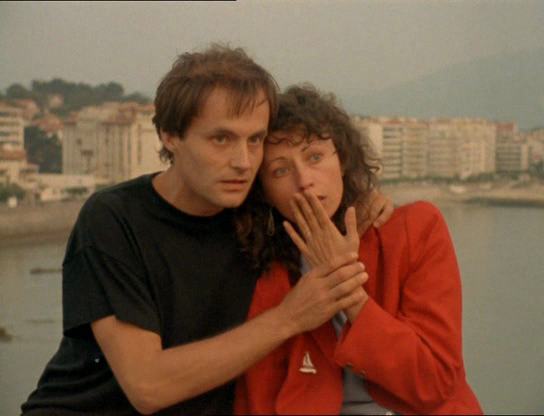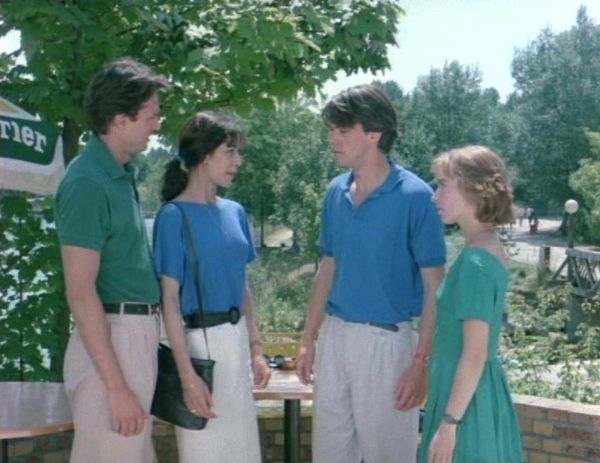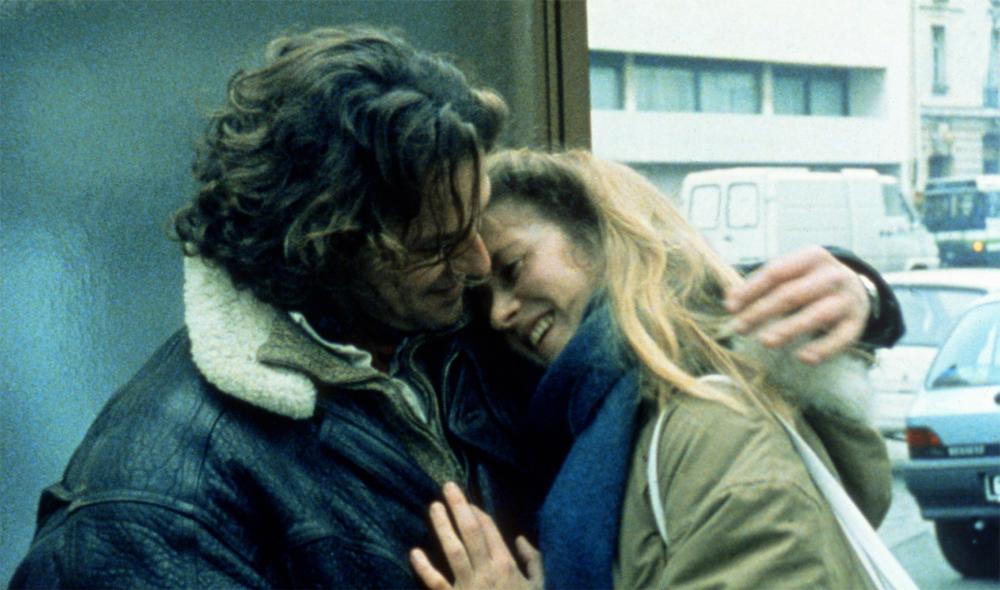5. The Green Ray (1986)

What does romantic fulfillment mean? Is it in terms of the people you meet, or is it in the old-school sense of fully appreciating and basking in the wonders of the natural world? Èric Rohmer’s best and most transcendent film The Green Ray is the best depiction of how where you go can be just as important as who you meet, and that the two things exist together in a fraught balance which can be devilishly hard to get right.
It is a study in loneliness, depicting a woman who cannot bear the crowded streets of Paris post-break up but also has nowhere to go on holiday as her best friend decides to take her boyfriend on holiday to Greece instead. She moves from place to place, arriving at destinations such as ski resorts and beach parties only to run away in horror at these not being the places she really wanted to stay.
Around about two-thirds of the movie in, the viewer cannot help but feel emotionally drained by her inability to find happiness. There is no one place that she seemingly wants to go despite the friendliness of the people she meets, and there are definitely no men with whom she wants to be with, tired of the phony games that dating and sex entails.
Again, Rohmer seems to paint himself into a hole, until all of a sudden, she finds what she has been looking for — notably at the moment she least expects it. It involves a man, but it isn’t really about him; its about finding peace with oneself, showing that romantic fulfillment is infinitely more complicated than simply finding someone to wake up next to every day.
The final shot, referencing the title of the film, is perfect, finding the ultimate objective correlative to her final state of mind. By avoiding the obvious, Rohmer finds the transcendent.
6. Boyfriends and Girlfriends (1987)

Boyfriends and Girlfriends, set on the outskirts of Paris, is one of Rohmer’s most hilarious films; a lacerating satire of yuppie life and the moral emptiness that it can entail. Yet in its free-flowing exchange of lovers, it reveals itself to be so much fun that the characters become impossible to hate.
Despite having no real intellectual depth — they certainly wouldn’t spend their time watching Rohmer films — they aren’t bad people, only symptomatic of a materialist, neoliberal culture that sees lovers as simply another item to own.
It concerns Blanche, who lives in a trendy New Town, namely a place without any real culture, and works at the university. One day she makes friends with another woman and they have lunch together. She introduces her to her male friend and the romance begins in a plot so fiendishly composed it recalls the best of Shakespearian Comedy. It is different to the other films on this list in that there are no great epiphanies, love affairs or deep intellectual conversations.
Yet it shows Rohmer working in another manner entirely, applying the farce to fundamentally empty characters to critique the problem with manufactured towns, self-interested ambition and having a lack of depth. To do so in the form of such a delightfully enjoyable comedy, as opposed to a psycho-sexual thrillers — see American equivalent yuppie satire Fatal Attraction — only showcases how unique a director Èric Rohmer really is.
7. A Tale of Winter (1992)

Èric Rohmer’s films love to rely upon semi-magical coincidences that occur in highly naturalistic settings. If he wasn’t such a charming filmmaker, with such a great ear for dialogue with such well-framed shots of characters walking and talking around, these deus ex machina’s could be very trite indeed. Rather, as he is so clever at implementing them, one cannot complain; instead only marvel. He has a knack for endings that are so charming that one can only smile.
A Tale Of Winter is a film about an ending, so much so that it seems that the entire movie is backdated from it. It tells a story of lost love that seemingly gets more and more tragic as it gets on. After spending a wonderful holiday together, Felicie and Charles mess up their respective addresses and lose contact with each other.
Five years pass. She spends time with two different men but cannot commit truly to either because Charles — the man who is forever gone, and with whom shares a child — remains her one true love.
There are numerous philosophical arguments, and questions of belief and faith are raised. Then one day on the bus, Charles is simply there. She takes him home to meet her family, and the movie ends.
By making the thing that one would expect not to happen because it is so obvious actually happen, Rohmer surprises and beguiles. Is it coincidence or fate? This answer is never answered. It is love though, and Rohmer’s cinema here would convince even the hardest of critics of its existence.
8. A Summer’s Tale (1996)

A Summer’s Tale is about having no choices, then suddenly having too many. Having left his girlfriend to go on holiday, and unsure whether she will actually join her, it appears that our hero will spend his holiday alone. Then something happens; he meets a girl, a local waitress. Then he meets another girl, who has long flowing hair whilst the other has a boyish cut. Then to make things even more complicated; his girlfriend reveals that she is coming to join him after all.
What is so amazing about this movie is how it takes such a normal romantic set-up, filmed in those elegant long takes across beaches and sand dunes and on the verandas of bars and cafes that we have come to expect from the director, but in slowly accumulating the details really acts like a hangman slowly tightening the noose.
Once the film enter into its final third, and we realise that the boy who cannot choose is guilty of being both highly conceited and highly confused, and as a result looks like a goner, it enters into true thriller territory.
What if one day at the beach they all bump into one another? Who will he take on the next stage of the holiday? It is gripping unlike any other romance film. Yet Rohmer, and only Rohmer, because this is some other level of thinking, finds a resolution that is totally unexpected yet so totally in line with the protagonists mindset, that it enters the sublime. For a director who usually emphasised character over plot, A Summer’s Tale is arguably his best marriage of the two.
Author Bio: Redmond Bacon is a professional film writer and amateur musician from London. Currently based in Berlin (Brexit), most of his waking hours are spent around either watching, discussing, or thinking about movies. Sometimes he reads a book.